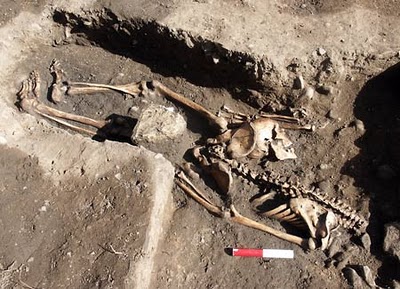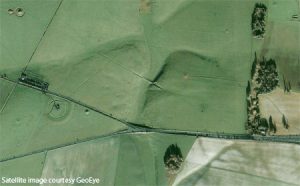 The BBC has officially announced its TVschedule for this autumn and winter, promising its audience a big focus on history, with new programmes and new presenters. What to expect from the Beeb this autumn and winter, when the rain and cold keeps you locked into your home?
The BBC has officially announced its TVschedule for this autumn and winter, promising its audience a big focus on history, with new programmes and new presenters. What to expect from the Beeb this autumn and winter, when the rain and cold keeps you locked into your home?
The autumn & winter 2010/2011 programming includes ‘Behind Closed Doors’ with Amanda Vickery, ‘The Do-Gooders’ with Ian Hislop and programming to mark the Battle of Britain’s 70th anniversary, with a drama-documentary based on Geoffrey Wellum’s book, First Light.
Ancient history specials served on these coldand dark winter nights will be ‘Pompeii’with Mary Beard, ‘Ancient Worlds’ with Richard Miles, Neil Oliver’s two-part ‘History of Ancient Britain’ and a look at Holy Land archaeology.
‘Ancient Worlds’ with Richard Miles
Archaeologist and historian Richard Miles embarks on a six-part odyssey from the first cities of Mesopotamia to the Christianisation of the Roman Empire to tell the story of what he argues is mankinds greatest achievement civilisation.
In the West, the term “civilisation” has been consigned to the museum display case. Embarrassed by its chauvinistic and elitist connotations, we have increasingly taken refuge in more politically correct and soft-focused terms such as “culture” to explain human origins. ‘Ancient Worlds’ seeks to rescue civilisation from its enforced retirement and celebrate such a hard-fought invention. Expect stunning locations and bold propositions about the origins of human society.
Neil Oliver’s ‘History of Ancient Britain’
For those who were wondering Neil Oliver (who earlier brought Britain ‘Cleopatra: Portrait of a Killer’) was doing at the Stonehenge Summer Solstice 2010 celebrations, here’s a huge clue:
In ‘History of Ancient Britain’ he embarks on an epic quest through thousands of years of ancient history to tell the story of how Britain and its people came to be.
The first part of the story takes him from the glacial wasteland of ice-age mammoth hunters, through the glories of the Stone Age, to the magnificence of international Bronze Age society. Neil travels the length and breadth of the British Isles exploring some of its greatest wonders and revealing how science is solving mysteries while getting hands-on experience of ancient technology.
Tapping into the latest discoveries and experimental archaeology, History Of Ancient Britain Part I gets under the skin of this mysterious world, the lives of the people who inhabited it, and the tipping points that changed their lives and made ours. History Of Ancient Britain Part II will continue the story through the Iron Age and the Celtic kings to the Romans.

‘Pompeii’ with Mary Beard
Mary Beard, Cambridge Professor of Classics, author of ‘Pompeii- The Life Of A Roman Town‘ (Bija interviewed Beard here) and avid blogger, gleans evidence from an extraordinary find in the ancient city of Pompeii to provide a fascinating new insight into the people who lived in the shadow of Mount Vesuvius before its cataclysmic eruption in 79AD.
In a dark cellar in Oplontis, a suburb of ancient Pompeii, the remains of more than 50 victims of the eruption are put under the microscope of forensic science. The remains are submitted to a barrage of tests that, together with a fresh look at other finds in the city, unlock a valuable scientific snapshot of Pompeiian life and there are some surprises in store.
The programme features a visit to bars, baths, brothels,dining rooms and an ancient cesspit, where viewers can see what really went through ancient digestive tracts and learn about Roman hygiene: We can see ever so clearly where the water comes into the pool, but there isn’t a single place where it can go out. Make sure you don’t go to the baths if you have an open wound. You are likely to die of gangreen if you do.
‘The Bible’s Buried Secrets’ with Francesca Stavrakopoulou
Hebrew Scholar Francesca Stavrakopoulou examines how recent archaeological discoveries are changing the way stories from The Bible are interpreted and how these, in turn, are forcing a re-assessment of the understanding of the legacy of Judaism, Christianity and Islam both in the Middle East and in the West.
In thenew three-part series ‘The Bible’s Buried Secrets’, Francesca travels to major archaeological digs throughout the Middle East to investigate the origins of the story of the Garden of Eden, the emergence of the worship of one God and the historical context of King David – and his wondrous kingdom.
She also visits Khirbet Qeiyafa (a fortified city in Judah from the time of King David), the ancient city of Ugarit in Syria (considered to be the single most important biblical archaeological discovery of the last century) and the Tell es-Safi/Gath excavations (blogging here).
Following Francesca on her journey through some of the world’s most beautiful but inaccessible landscapes, The Bible’s Buried Secrets aims to place some of its most iconic stories into a new historical context.
A promising menu for those dark winter evenings, don’t you think? Hot choco and BBC iPlayer, here I come! No need to wait until winter for excellent history documentaries in the UK.For this month’s rainyevenings, you can settle down in front of the TVandswitch to‘King Arthur’s Round Table Revealed’, whichpremiers on History ChannelJuly 19th. For a truly historical docudrama, trytuning in toChasing Mummies. Really, the destruction of Atlantis isn’t nearly as devestatingly shocking asZahiHawass’ rage: “Nobody talk! Nobody talk! NOBODYTALK!!!”Just quoting! We’re happy for you tochat, and look forward to your opinions on theBBC’s upcoming ‘authorative history’ programmes. Everybody talk, ! 😉



